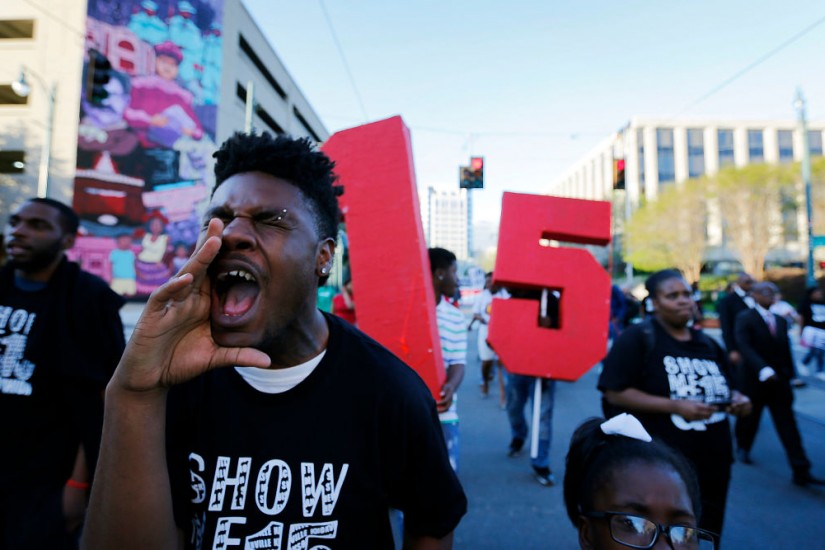Today, 50 years after Dr King launched the Poor People’s Campaign, there are 60% more Americans living in poverty and a staggering 64 million working people paid less than $15 an hour – including more than half of African Americans and Latinos. This isn’t an accident. It’s the result of big corporations ensuring working people don’t have a union to fight back – and elected officials who side with corporations in the fight for better wages and union rights.
Take St Louis, for example. In 2016, fast-food workers who are part of the Fight for $15 led a successful effort to increase the city’s minimum wage to $10.10. Before the law could be put into effect, white politicians operating at the behest of restaurant industry lobbyists passed a pre-emption law overturning the increase, costing 30,000 workers desperately-needed raises.
The solution now – as it was in 1968 – is strong worker organizations. Unions give people the power to stand up to racist politicians who work hand in hand with corporations and keep people of color locked in poverty. Unionized black workers make a third more than their non-union counterparts, according for the Center for Economic and Policy Research, and are more likely to have basic benefits like health insurance and employer-sponsored retirement plans.
King understood unions are a critical component of the fight for racial and economic justice. He knew that attacks on unions were attacks on working people of all colors.
“We are saying that we are determined to be men,” he told the Memphis strikers the day before he died. “We are determined to be people. We are saying that we are God’s children. And that if we are God’s children we don’t have to live like we are forced to live.”
Today, sanitation and fast-food workers in Memphis are doing more than just commemorating a strike from long ago. Yes, we remember. But we also fight. So we no longer have to live like we are being forced to live.
